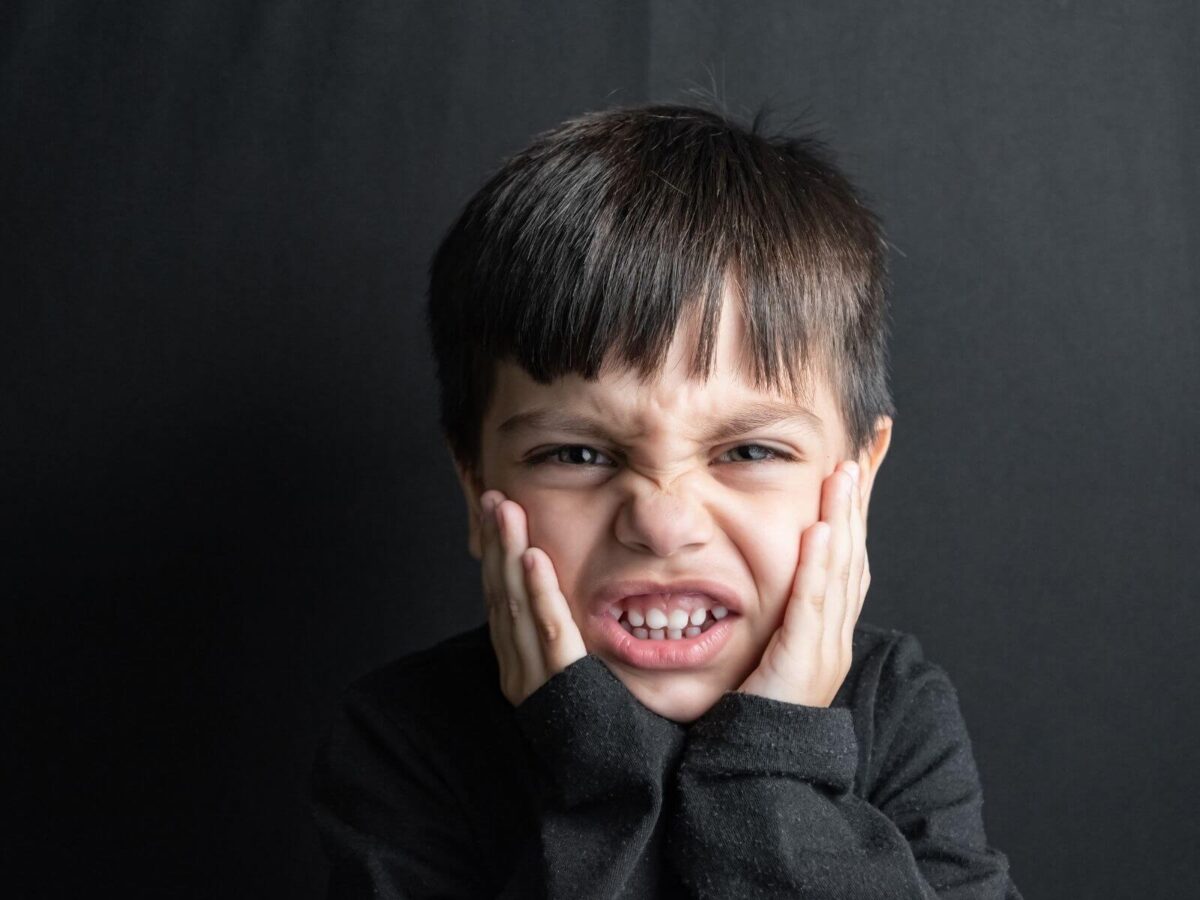Blog
Dental hygiene tips for healthy teeth & gums

Pediatric Dentistry Mystery: Why Does My Child Grind Their Teeth?
You’re not alone if your child grinds their teeth, especially while sleeping. Young children often grind their teeth. This condition is also known as bruxism. It’s normal for parents to worry about its causes, effects, and prevention.
Learn with a Port Lavaca Pediatric Dentist about bruxism, why it occurs, and how to treat it. Once you know the causes and treatment, it’s easy to take care of your kids’ oral health and give them a beautiful smile.
Understanding Child Bruxism
Children between the ages of three and seven are most likely to have this conditioning of grinding their teeth unconsciously. Bruxism can cause dental issues, sleep disturbances, and discomfort, although it usually goes away with age.
Understanding why grinding occurs is the first step to fixing it. Kids with mild teeth grinding rarely need treatment, especially if it doesn’t disrupt their sleep or create discomfort.
However, if you see tooth wear, jaw pain, or your child’s bruxism is hurting their sleep, consult a dentist. Port Lavaca Pediatric Dentist can diagnose and treat conditions.
Why Do Kids Grind Teeth?
Experts believe there are several child teeth grinding causes:
- Stress and Anxiety
Stress and worry can cause tooth grinding in youngsters. Stress might come from routine changes, school pressures, family concerns, or enthusiasm before important events. To relieve tension, children may involuntarily clench or grind their teeth. - Poor Tooth Alignment
Malocclusion—tooth or jaw misalignment—is another prevalent cause of bruxism. A child’s bite may feel “off,” causing grinding to compensate or establish a comfortable position. A Port Lavaca Pediatric Dentist commonly examines the bite difficulties of children with bruxism. - Pain Relief Remedy
Like adults, children may grind their teeth in response to pain, especially in the ears during teething. Grinding can disguise additional pain by stimulating jaw and cheek tissues. - Irregular Sleep Issues
Some studies link bruxism to sleep disorders, including Obstructive sleep apnea (OSA). Sleep apnea children may grind their teeth to open their airways. - Family History & Genetics
Port Lavaca Pediatric Dentist suggests that family histories can cause bruxism. A child may acquire teeth grinding if a parent or close relative does, suggesting a genetic or learned behavior component. - Hyperactivity and Personality
Hyperactive or energetic children may be more prone to bruxism, according to research. More aggressive or impulsive people are more likely to grind their teeth.
Negative Effects of Bruxism on Your Child’s Health
While bruxism in children is usually temporary, continuous grinding might have negative effects:
- Children who grind their teeth may wake up with stiff jaw muscles or facial pain, which can affect their mood.
- Grinding can wear down the enamel, causing tooth discomfort and cavities.
- Grinding can strain jaw muscles and joints, causing pain and headaches.
- Grinding can cause daytime tiredness and irritability in children.
Detecting Bruxism in Your Children
Grinding sounds during sleep alert parents of bruxism. However, some minor indications may indicate tooth grinding in children. Possible symptoms include morning headaches, aching jaw, and unusual tooth wear or chipping.
Tooth sensitivity without explanation, trouble opening the mouth or chewing comfortably, and sleep disturbances can also be caused by bruxism. If you notice these indicators, consult a Port Lavaca Pediatric Dentist for diagnosis and treatment.
Bruxism Treatment for Children
Most children overcome bruxism without treatment, although you can help with these tips suggested by Port Lavaca Pediatric Dentist:
- Techniques to Reduce Stress
Relaxation practices before bedtime may help with tension or anxiety. To assist your youngster in relaxing and stopping grinding, try reading bedtime stories to them, taking warm baths, or doing guided breathing exercises before bed. - Bite Alignment Correction:
Once the child’s permanent teeth have come in, braces or other dental devices may be advised for bruxism caused by a misaligned bite. - Wearing Night Guards:
A pediatric dentist may recommend a custom-fitted sleep guard for children with tooth wear or pain. Sleeping with this gadget over the teeth reduces grinding and prevents damage. - Addressing Sleep Disorders
Port Lavaca Pediatric Dentist or sleep specialist may recommend sleep studies for sleep disorders or apnea. Treating sleep disturbances often eliminates bruxism. - Giving Positive Reward
Positive reinforcement can also help with behavioral grinding. If your youngster grinds during the day, gently remind them to stop.
Helping Your Child Improve Sleep and Dental Habits
Good oral hygiene and sleep habits can also help manage bruxism:
- Regular dental checkups: Pediatric dentists can detect dental disorders early and monitor grinding-related tooth wear.
- A Good Sleep Schedule: Consistent sleep schedules reduce stress and increase sleep quality, which may reduce bruxism.
- Limit screen time before bed: Screen blue light affects melatonin production and sleep quality. Encourage an hour of screen-free time before bed to improve sleep.
The Final Verdict
Children’s teeth grinding might be upsetting, but they usually outgrow it. Monitoring your child’s stressors, dental habits, and pediatric dentist visits helps reduce any negative impacts. With proper care, your child can grow up with a healthy, comfortable smile.
Always consult a dentist for tailored bruxism management and child oral health recommendations. If you are living in Texas, Port Lavaca Pediatric Dentist is your trusted go-to destination for treating your child’s bruxism.


